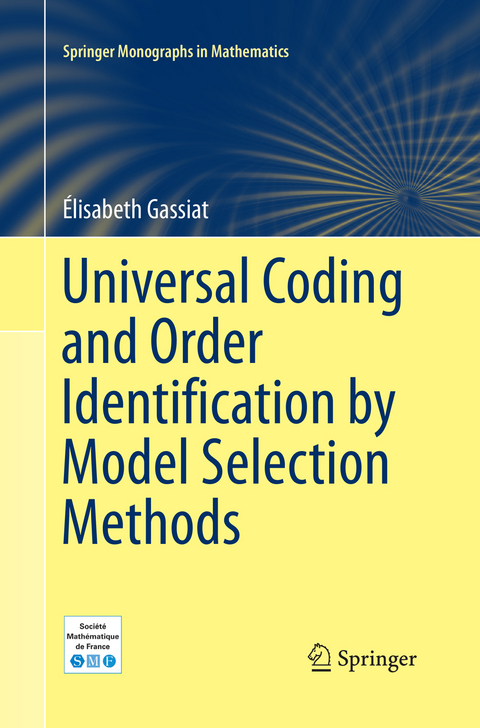
Universal Coding and Order Identification by Model Selection Methods
Springer International Publishing (Verlag)
9783030071677 (ISBN)
This book is accessible to anyone with a graduate level in Mathematics, and will appeal to information theoreticians and mathematical statisticians alike. Except for Chapter 4, all proofs are detailed and all tools needed to understand the text are reviewed.
Elisabeth Gassiat received her PhD from Paris Sud University (Orsay) in 1988. From 1988 to 1993, she was a Maître de Conférences at Paris Sud University and, from 1993 to 1998, a professor at Evry Val d'Essonne University. Since 1998, she has been a professor of Mathematics at Université Paris Sud. A leading expert on statistics and information theory, she has supervised more than 18 PhD students.
1. Lossless Coding.- 2.Universal Coding on Finite Alphabets.- 3.Universal Coding on Infinite Alphabets.- 4.Model Order Estimation.- Notation.- Index.
"The book represents a clear and concise description of the coding concepts ... . the book can represents a good study in the fundamental of coding theory, in relations with mathematical study, the basement of developing particular models for universal coding theory." (Nicolae Constantinescu, zbMATH 1441.94002, 2020)
| Erscheinungsdatum | 17.01.2019 |
|---|---|
| Reihe/Serie | Springer Monographs in Mathematics |
| Übersetzer | Anna Ben-Hamou |
| Zusatzinfo | XV, 146 p. 5 illus. |
| Verlagsort | Cham |
| Sprache | englisch |
| Original-Titel | Codage Universel et Identification d'ordre par Sélection de Modèles |
| Maße | 155 x 235 mm |
| Gewicht | 260 g |
| Themenwelt | Informatik ► Theorie / Studium ► Kryptologie |
| Mathematik / Informatik ► Mathematik | |
| Schlagworte | 68P30, 62C10 • Adaptive Compression • Hidden Markov Chains • Infinite Alphabets • Model Selection • universal coding |
| ISBN-13 | 9783030071677 / 9783030071677 |
| Zustand | Neuware |
| Informationen gemäß Produktsicherheitsverordnung (GPSR) | |
| Haben Sie eine Frage zum Produkt? |
aus dem Bereich


